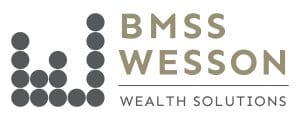Money Matters
As the April tax deadline approaches, many households find themselves wondering if they are paying more taxes than necessary. Here are a few high-level concepts to keep in mind.
Retirement planning: When allocating 401(k) or IRA contributions between Roth or traditional accounts, it can be difficult to know which is better. Assuming that tax rates in the future mirror the current structure, a simple way to approach this decision is to compare your marginal tax rate today to your expected marginal tax rate at retirement. For example, if you file jointly and your taxable income is $200,000 today (32% marginal rate), and you expect your taxable income in retirement to be $100,000 (22% marginal rate), you generally are best served to maximize your pre-tax, or traditional, allocations. However, if your taxable income today is $50,000 (12% marginal rate), and you expect a higher taxable income in retirement, it is likely better to allocate funds to Roth accounts. Keep in mind that there may be income limitations to consider. Traditional IRA contributions may not be deductible if either spouse has access to a workplace retirement plan, and Roth IRA contributions are not allowable at higher incomes (although there are strategies to deal with this limitation).
Asset allocation: As yields on cash and fixed income have increased, many are feeling the bite of ordinary income taxes on interest income from taxable bonds or high-yield savings accounts. In many cases, it is wise to invest taxable accounts in assets that offer preferential tax rates on long-term capital gains and qualified dividends (such as equities or equity funds). Conversely, you may want to hold assets that produce ordinary income (such as taxable bonds) in retirement accounts to defer those taxes as long as possible. Your time horizon, risk tolerance, liquidity needs, and your values are other relevant factors to consider before finalizing your allocation.
Fund selection: Due to the fund structure, exchange-traded funds (ETFs) are typically more tax-efficient than mutual funds—even when tracking the same index. When similar mutual funds and ETFs are available to meet an investment goal, it may be better to choose ETFs if the account is taxable. Additionally, actively managed mutual funds often distribute more income (and result in higher taxes) than index mutual funds, since active funds typically have higher turnover of the underlying assets.
BMSS Wesson Wealth Solutions offers comprehensive financial planning and investment strategies aligned with your values. We specialize in serving business owners, corporate executives, and families stewarding earnings or inherited wealth. Please feel free to contact me to discuss your interests in our services. Qualifying portfolios may be eligible for a review at no cost.
Senior Financial Planner










